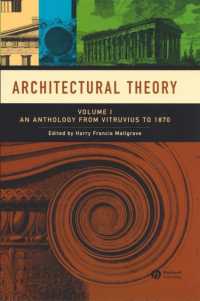Full Description
Using language and thought to fix events in time is one of the most complex computational feats that humans perform. In the first book-length taxonomy of temporal frames of reference, Vyvyan Evans provides an overview of the role of space in structuring human representations of time. Challenging the assumption that time is straightforwardly structured in terms of space, he shows that while space is important for temporal representation, time is nevertheless separate and distinguishable from it. Evans argues for three distinct temporal frames of reference in language and cognition and evaluates the nature of temporal reference from a cross-linguistic perspective. His central thesis is that the hallmark of temporal reference is transience, a property unique to the domain of time. This important study has implications not only for the relationship between space and time, but also for that between language and figurative thought, and the nature of linguistically-mediated meaning construction.
Contents
Part I. Orientation: 1. Introduction; 2. Access semantics; 3. The nature of temporal reference; Part II. Temporal Frames of Reference: 4. Deictic temporal reference; 5. Sequential temporal reference; 6. Extrinsic temporal reference; 7. Time versus space; Part III. Meaning Construction and Temporal Reference: 8. Conceptual metaphors and lexical concepts; 9. Figurative meaning construction in LCCM theory; 10. Semantic affordances and temporal reference; 11. Universals and diversity in the cross-linguistic representation of time.








